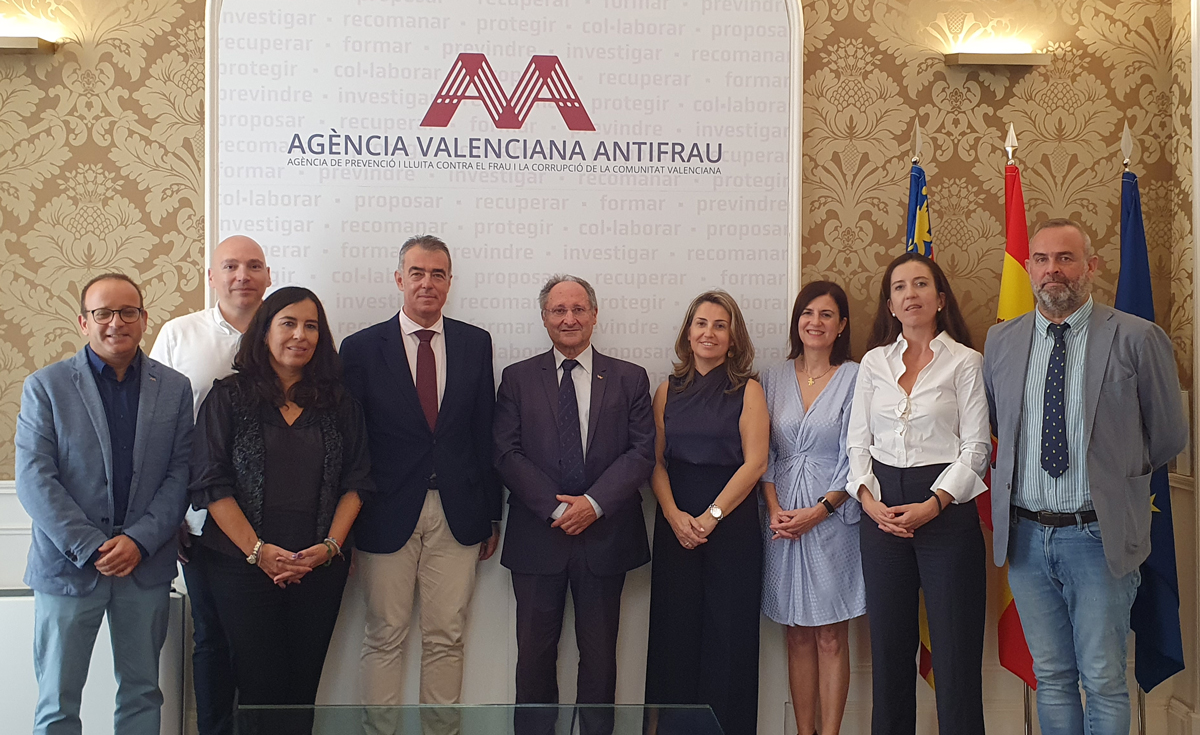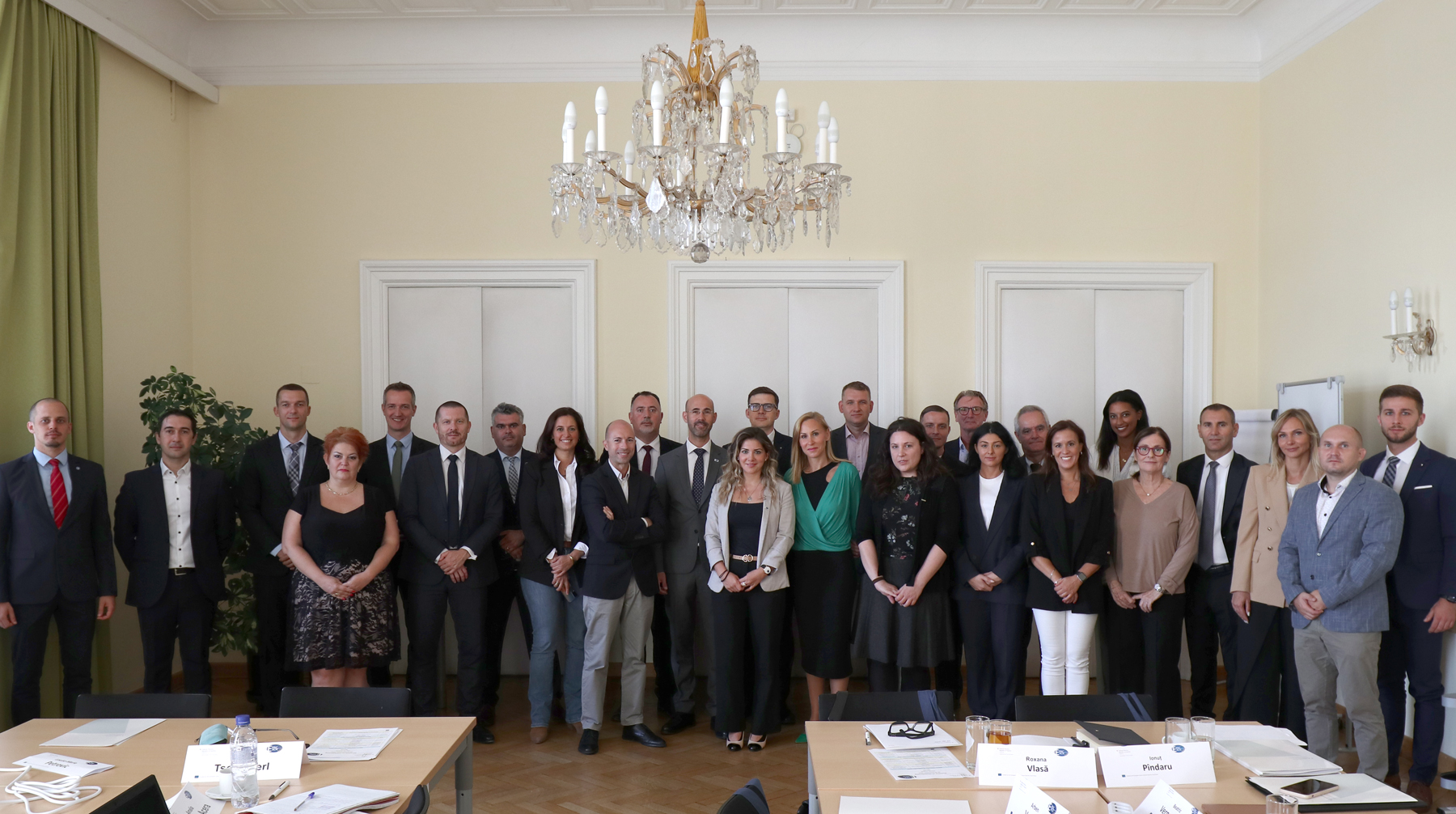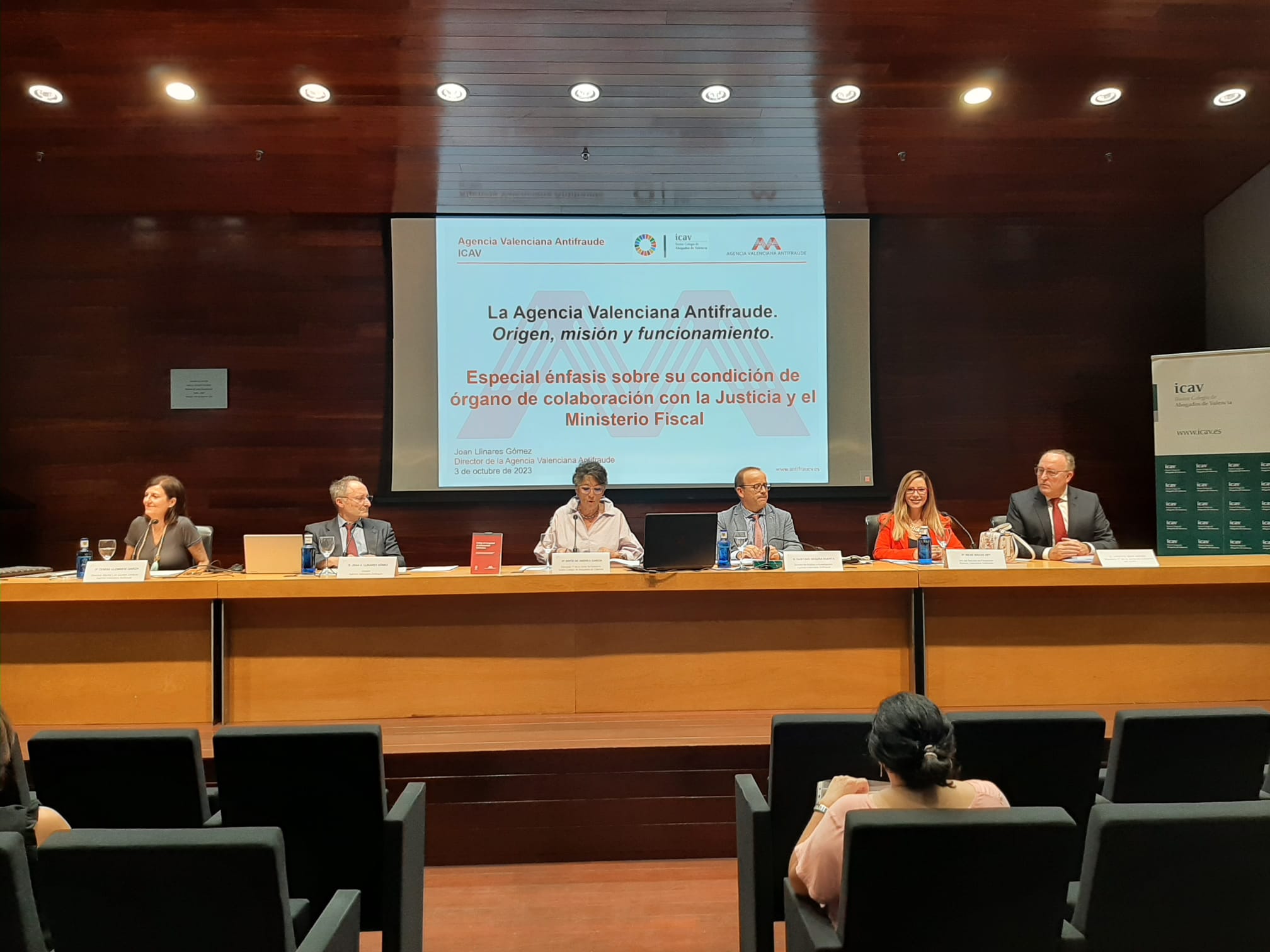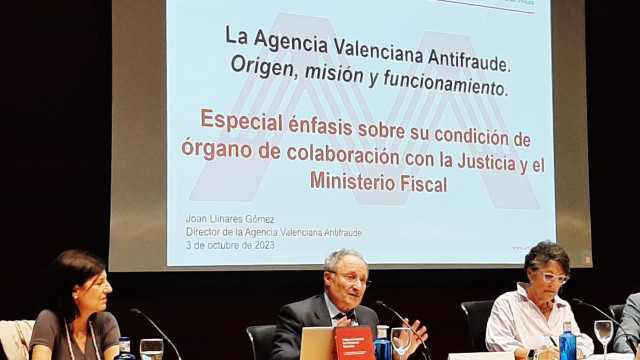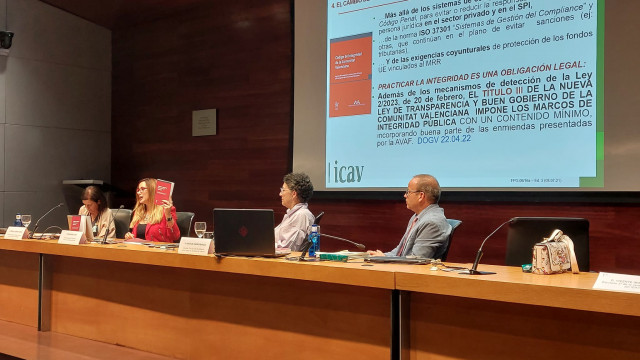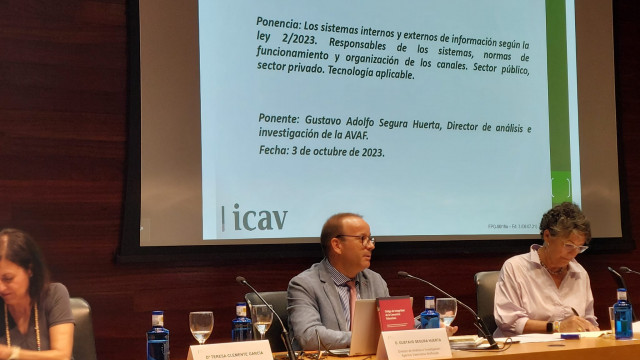Valencia, October 11, 2023.- The director of the Andalusian Office against Fraud and Corruption, Ricardo Vicente Puyol, and the director of the Valencian Anti-Fraud Agency, Joan Llinares, have signed a framework collaboration agreement between both institutions.
The objective of the agreement is to establish a permanent channel of communication and collaboration in order to improve efficiency in the fulfillment of its objectives. In this way it is established that they will collaborate in those cases in which both entities have competence, and also when one of them is aware of a matter, which may correspond to the competence of the other.
They will also share knowledge and practical experience in the prevention of fraud and corruption, the promotion of integrity, public ethics and transparency.
An important part of this collaboration will focus on sharing work methodologies for which exchange stays will be carried out between both institutions in order to improve the training of their staff. The first of these exchanges took advantage of the signing of the agreement that took place in Valencia where the directors of the areas of research, legal, training and administration of both institutions held bilateral working meetings.
They will also carry out joint training actions, prepare studies on the prevention of corruption, or in the organizations of dissemination and training activities for citizens.
The director of the Andalusian Anti-Fraud Office, Ricardo Vicente Puyol, highlighted the activity carried out by the Valencian Agency, as “a reference institution in the field of prevention, training and protection of whistleblowers” and stressed “the importance of undertaking coordinated actions at the regional level to increase the effectiveness of our respective competences”.
The director of the Valencian Anti-Fraud Agency, Joan Llinares, congratulated the Andalusian Office for the work they are doing and that “highlights the important role that regional offices and agencies are playing in the fight against fraud and corruption”.
The Andalusian Office against Fraud and Corruption was created in 2021 by Law 2/2021, of June 18, on the fight against fraud and corruption in Andalusia and protection of the whistleblower. At the head of it is the magistrate Ricardo Puyol, elected by the Andalusian Parliament and who was Magistrate-Judge of the Courts of Instruction number 1 and 2 of Marbella, coinciding with the period of emergence of the largest cases of corruption in this municipality of Malaga.


